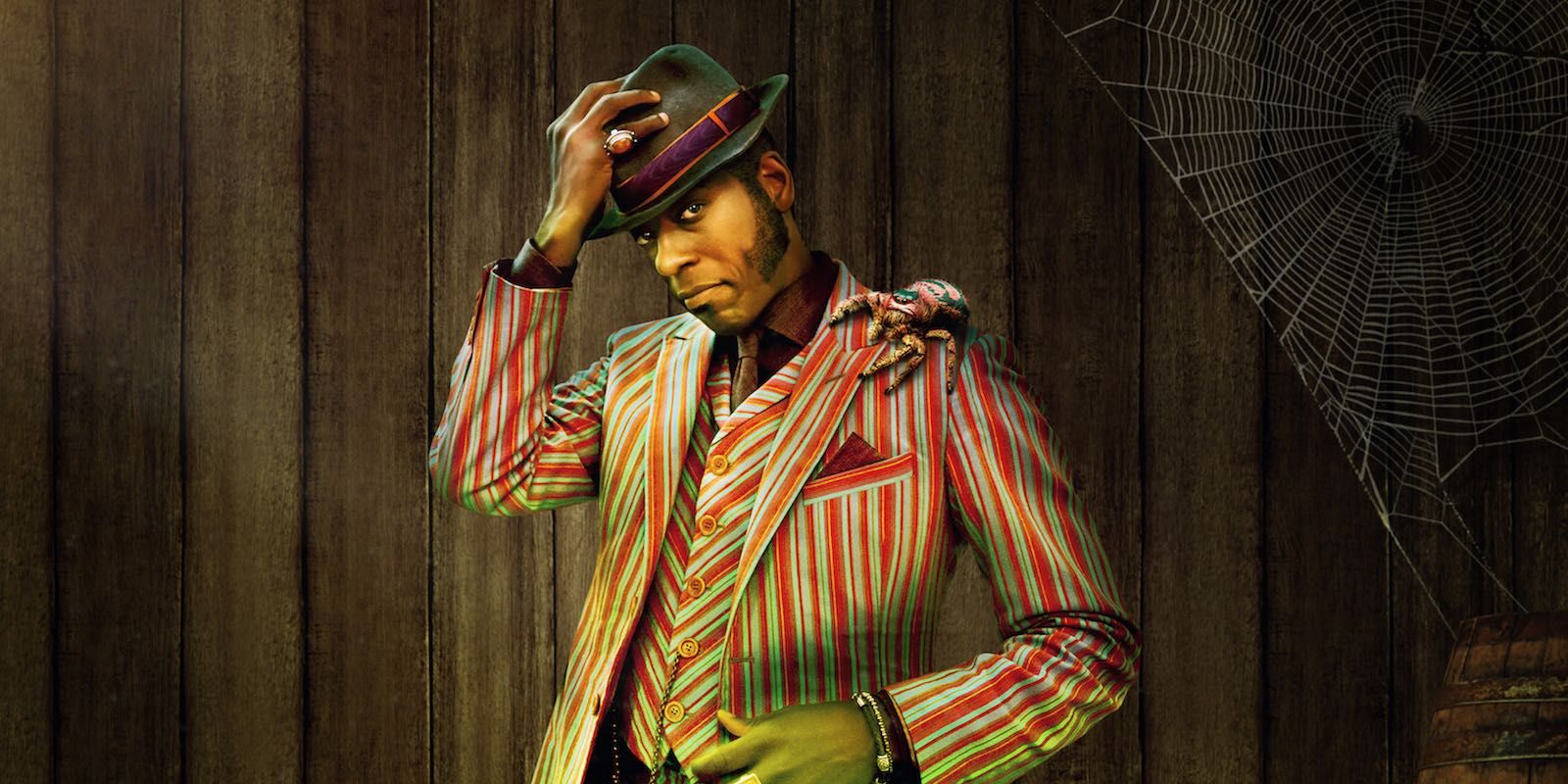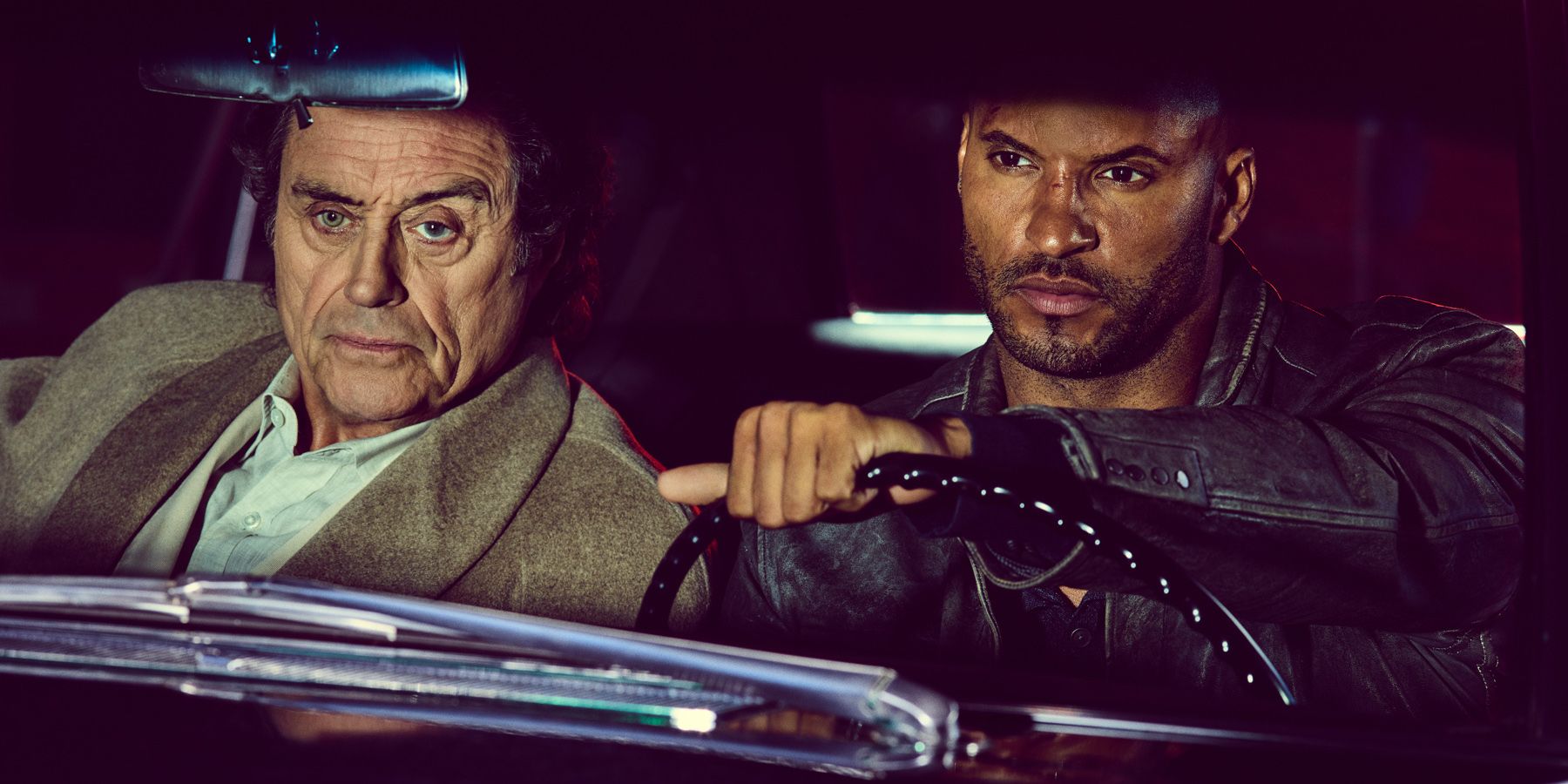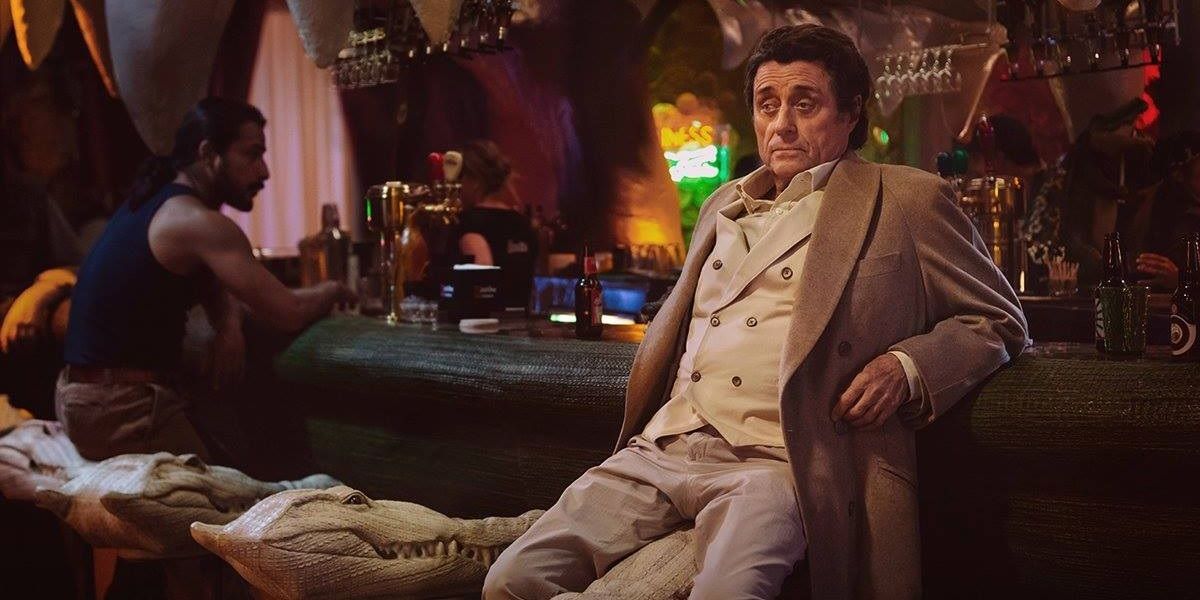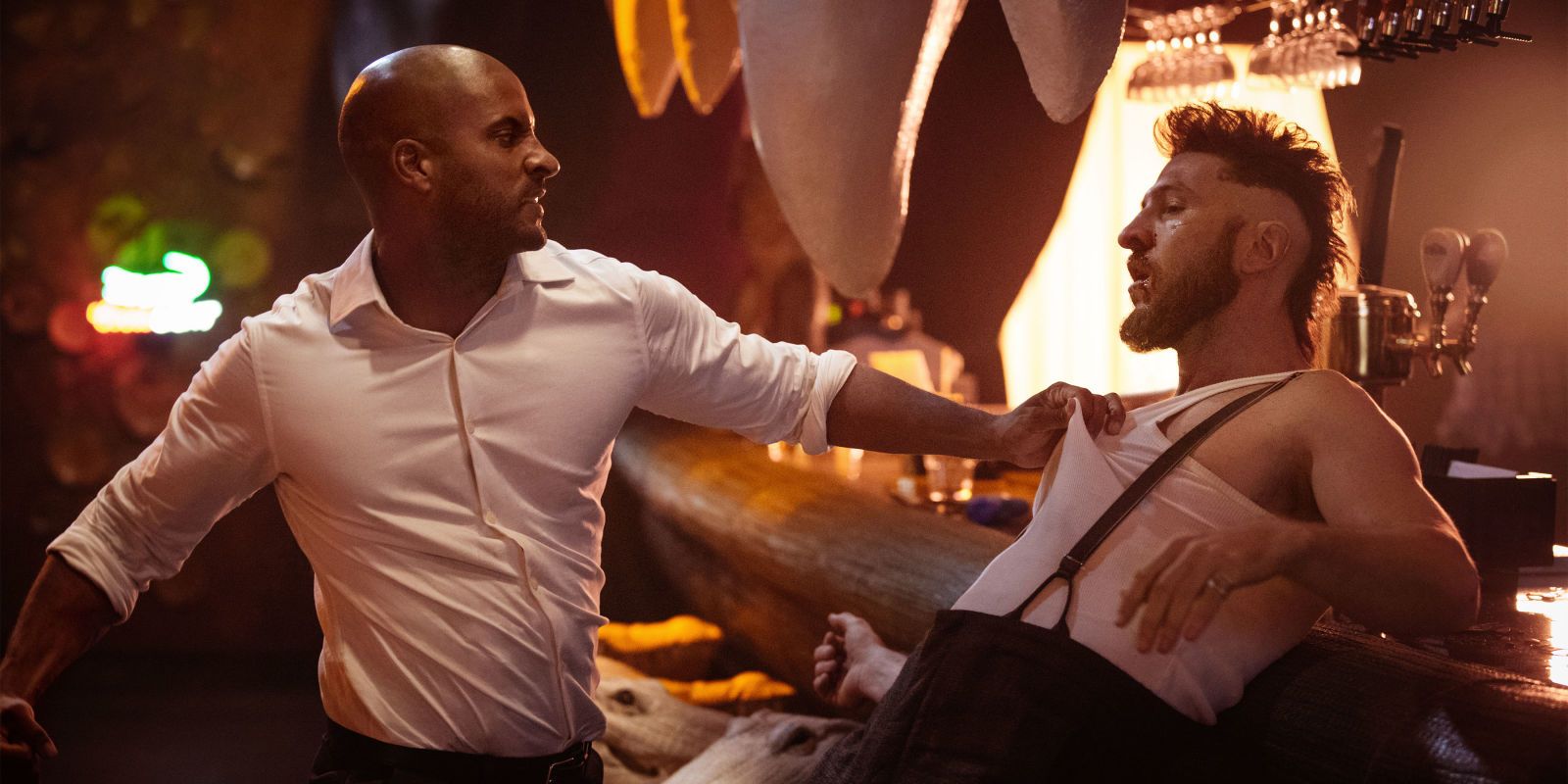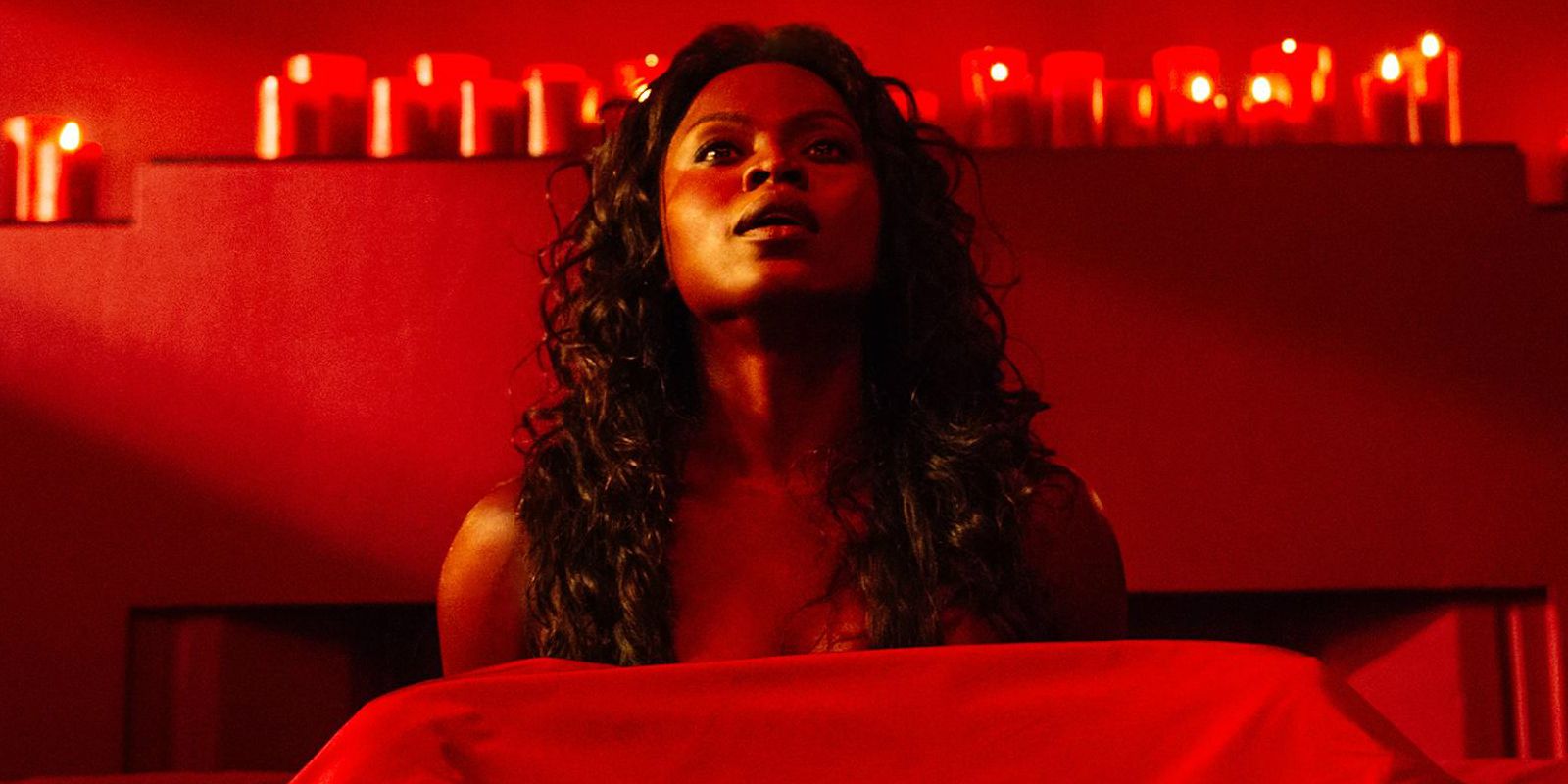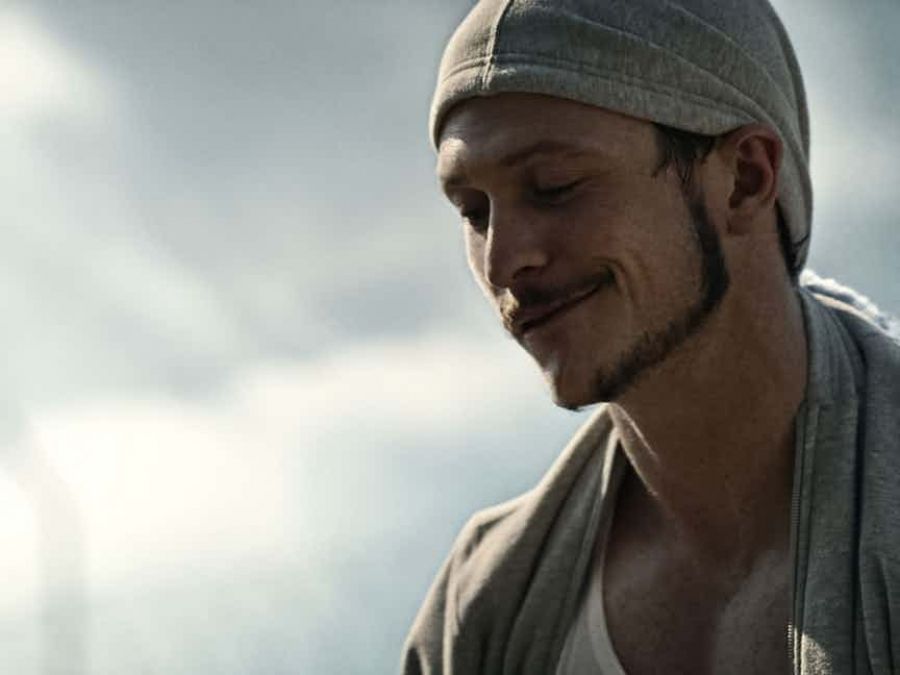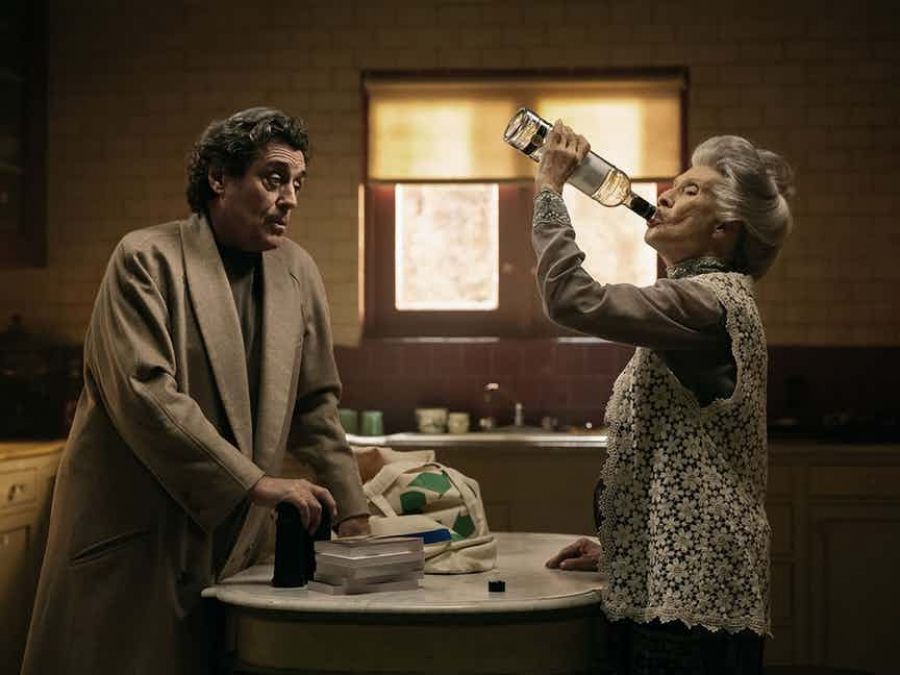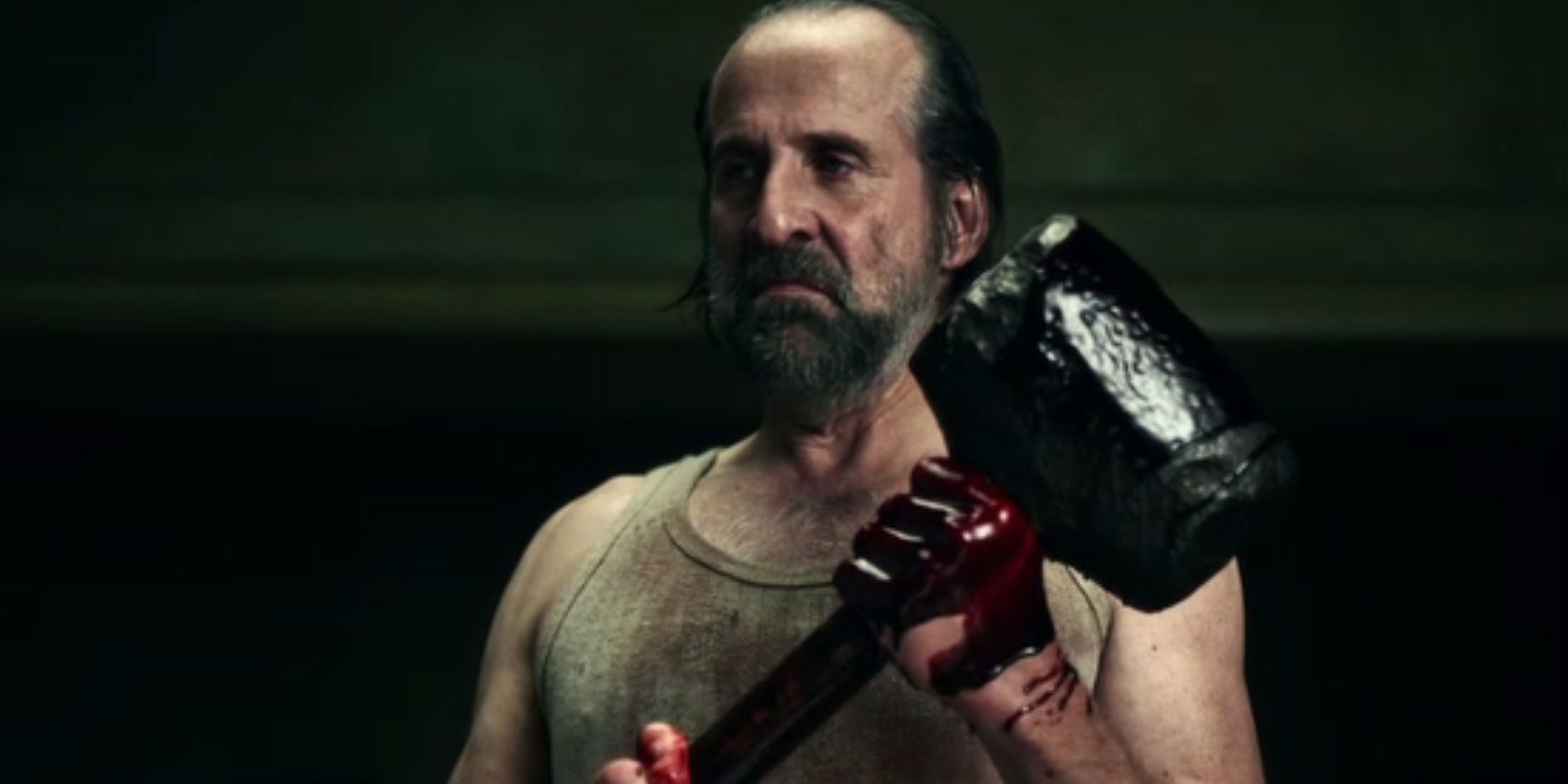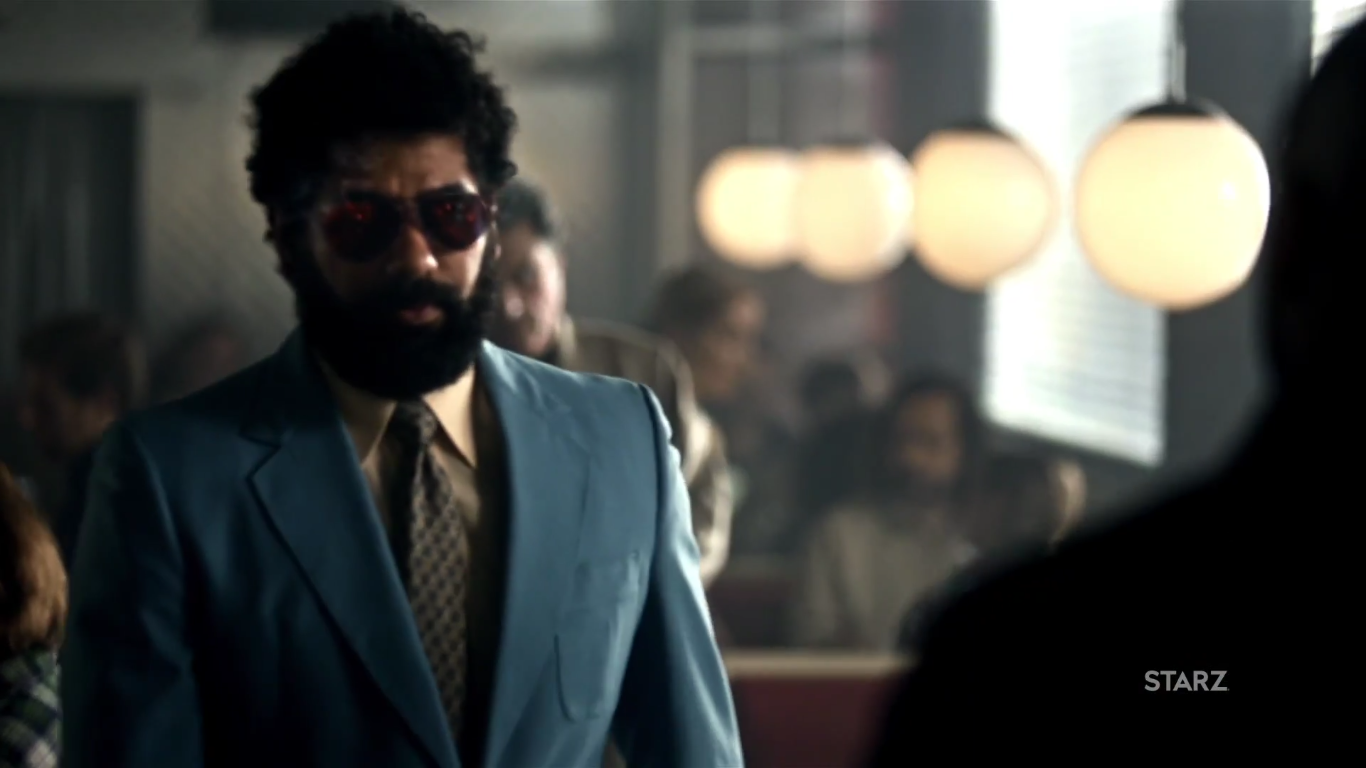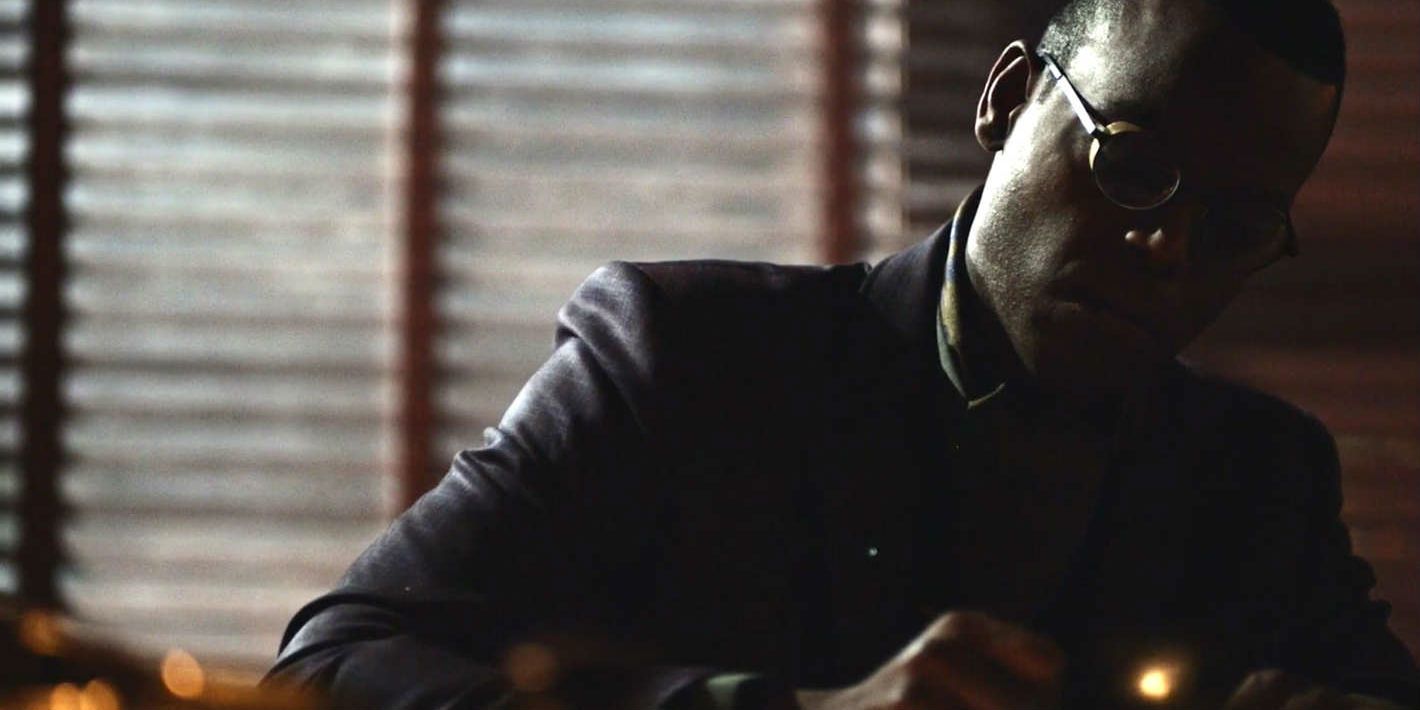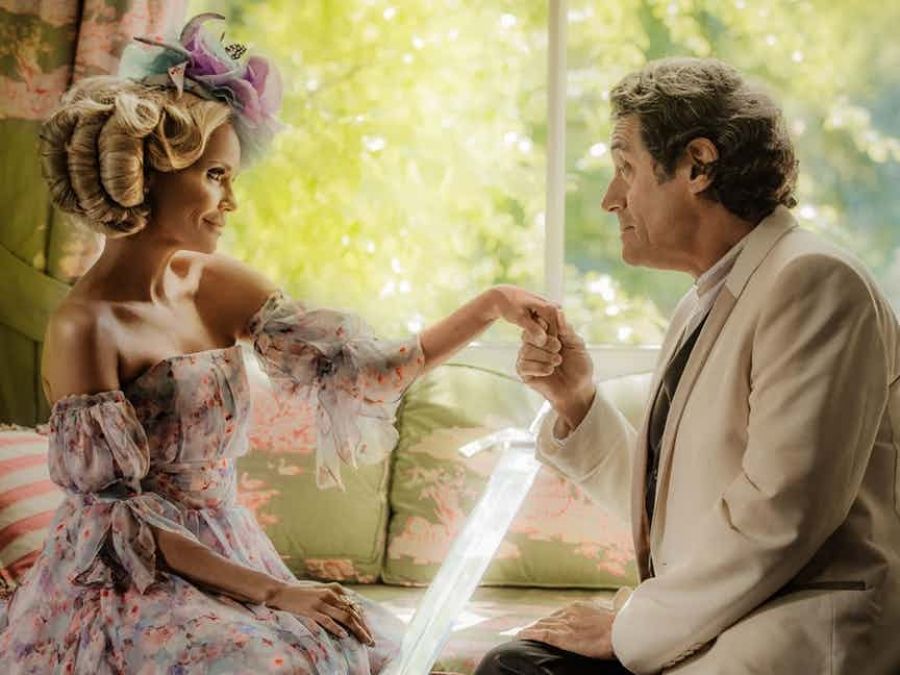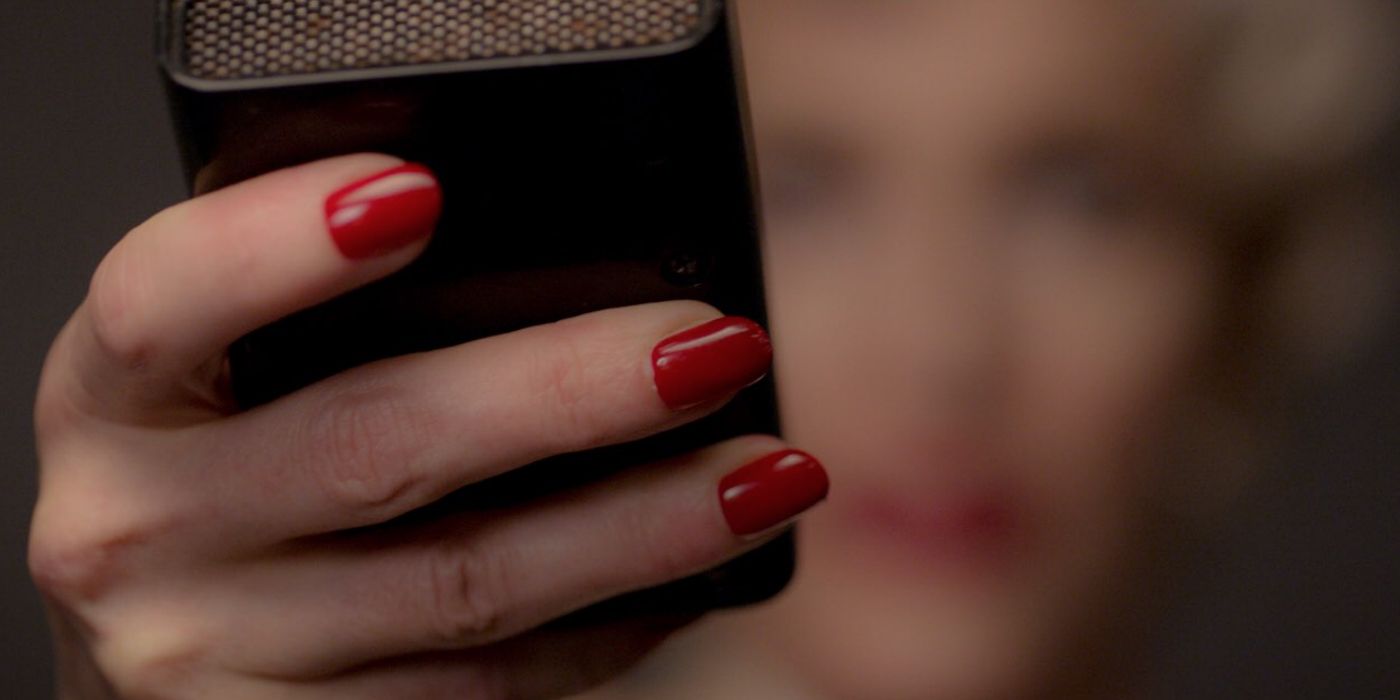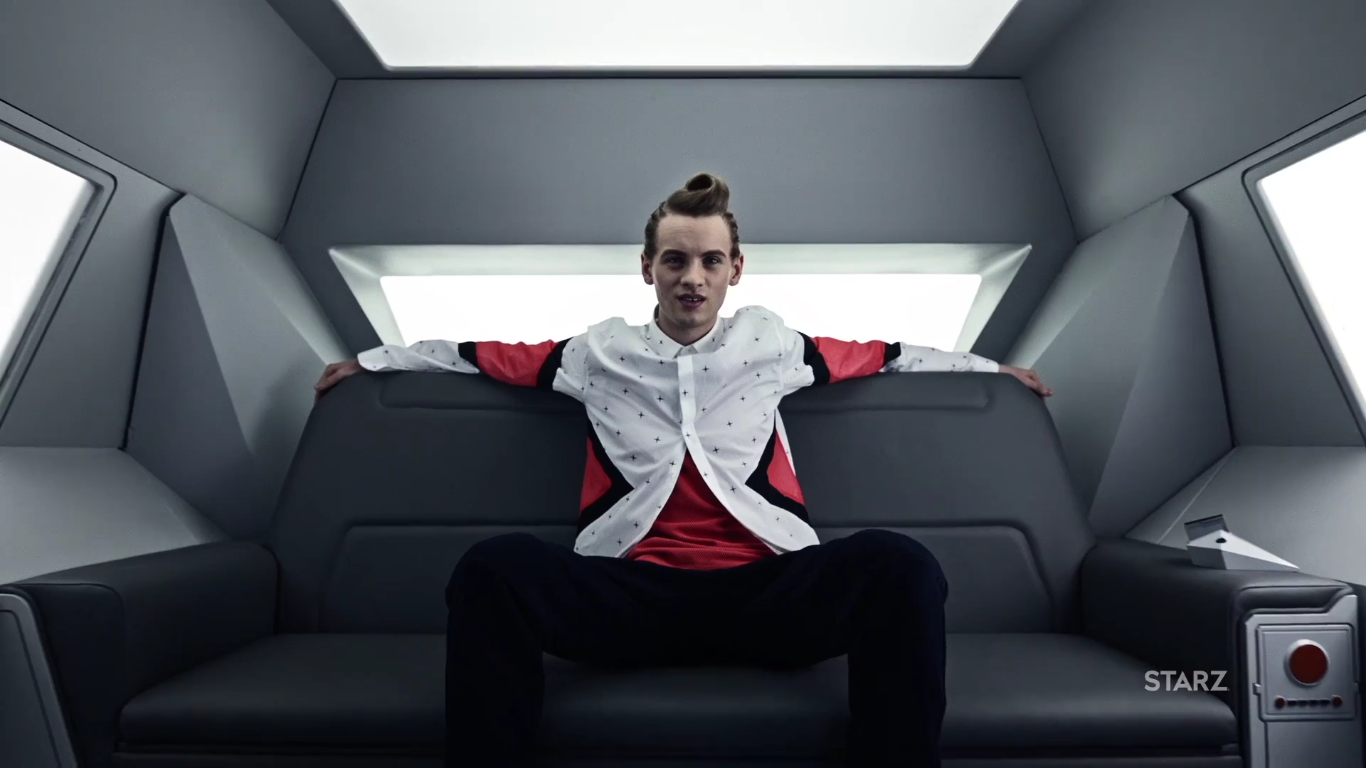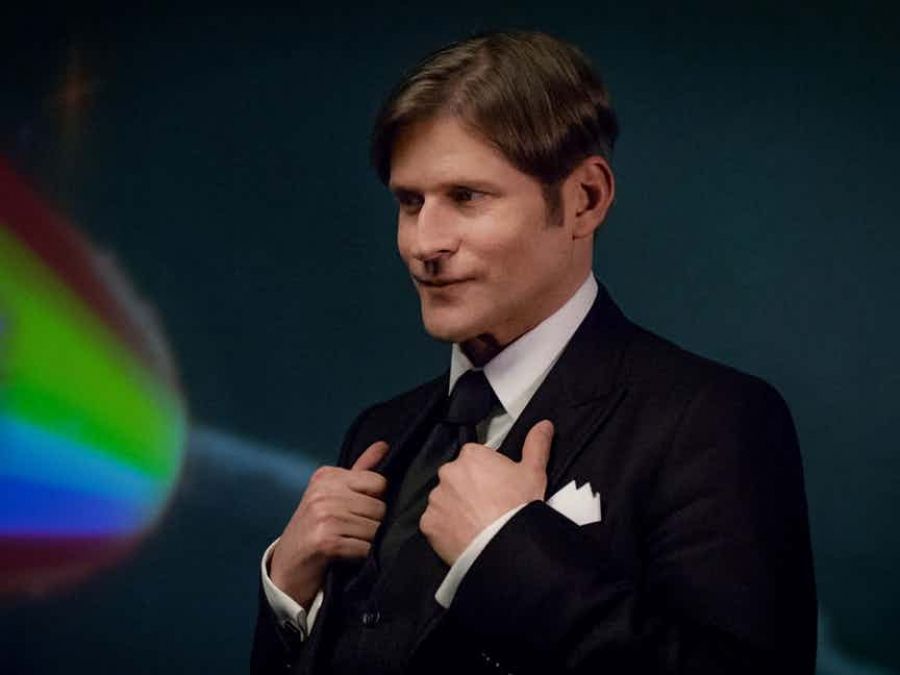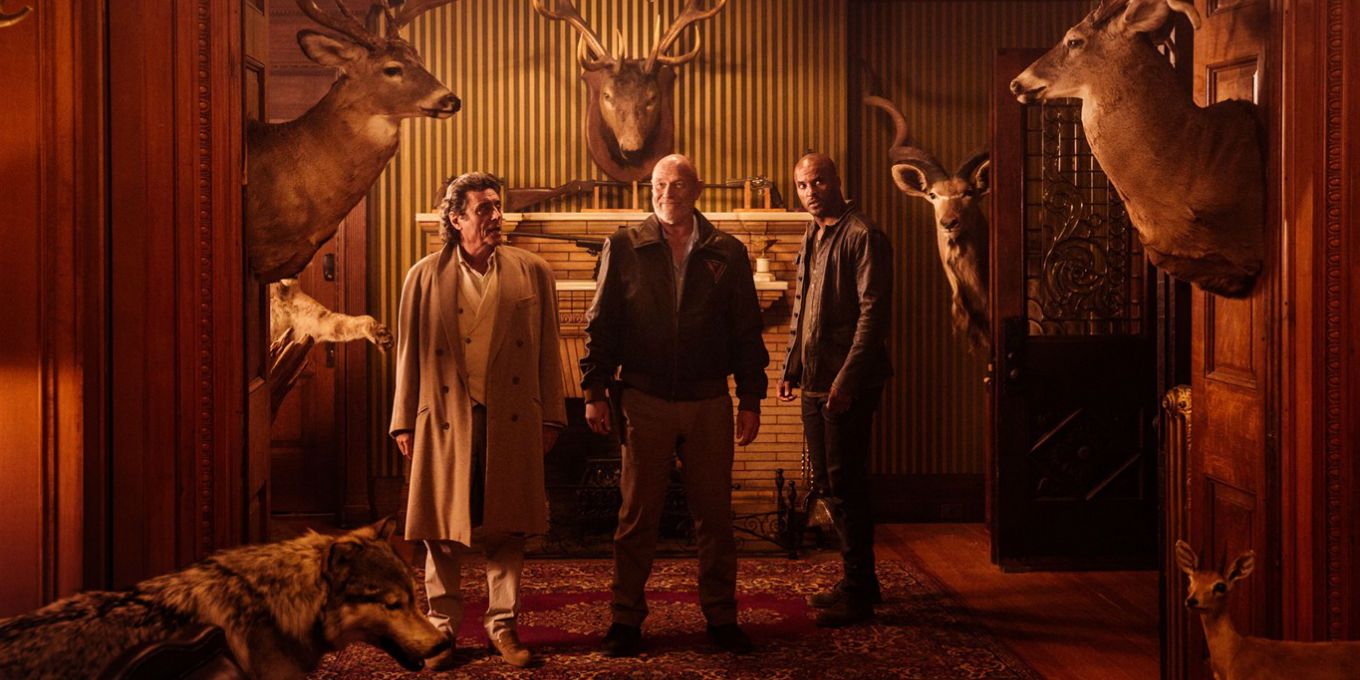Fans of author Neil Gaiman have been waiting for an adaptation of his Hugo and Nebula Award winning fantasy epic American Gods since its publication. After multiple failed attempts, the book its finally making its way to the small screen, courtesy of Hannibal’s Bryan Fuller and Heroes’ Michael Green. The series, which will follow reluctant hero Shadow Moon (Ricky Whittle) as he accompanies the enigmatic Mr. Wednesday (Ian McShane) across the country in preparation for a mystical war, is easily one of the most highly anticipated new shows of 2017, and will debut tonight on Starz.
Like much of Gaiman’s work, American Gods is a fascinating exploration of faith, mythology and the power behind that which we adore. In Shadow’s world, the gods of old – from Norse, Egyptian and African mythology, among others – have been abandoned by the people who used to worship them in favour of the obsessions of the new world, from media to technology. The showrunners have compiled a cast as diverse and fascinating as the gods they’ll inhabit, and given that the first season is said to only encompass about the first third of the novel, there will be plenty of room to explore each of them in immense detail.
While the mythology geeks in the audience will spot each gods’ origins in a heartbeat, for the novices and the curious, we’ve compiled a primer on the main gods, old and new, who Shadow will be encountering on his very odd road trip.
Mr. Wednesday (Ian McShane)
The man responsible for it all, Mr. Wednesday is the mysterious figure who hires Shadow to accompany him as a bodyguard on his journey to recruit the gods of old to his team in preparation for all-out war with the new generation. As the Old Norse god Odin, Mr. Wednesday uses his skills of wisdom and knowledge to charm and seduce those around him into doing his bidding. Odin is one of the most widely revered figures in Norse and Germanic mythology, and usually takes the form of a one-eyed, long bearded figure of omniscience, although in American Gods he has taken the form of a smooth-talking Ian McShane. He's the inspiration for a host of characters in modern fiction, including several from the work of J.R.R. Tolkien and, of course, Marvel's Thor. The name Mr. Wednesday originates from the weekday being named after Odin, as he himself says – “Today’s my day.”
Mad Sweeney (Pablo Schreiber)
The origins of Mad Sweeney lie in Irish mythology and the story of Buile Shuibhne, a tale of a King driven insane by the curse of St Ronan. In the novel, Mad Sweeney is described, somewhat derogatorily, as a leprechaun, although he far from fits the assumed description of one. His own backstory fits with that of many Irish immigrants who settled in America, and how, having been in the country for thousands of years, he has lost his accent but still plays into many preconceived stereotypes of Irishness - he's a heavy drinking foul mouthed red-head who likes to punch people.
Bilquis (Yetide Badaki)
While the world of the gods is one mostly dominated by men, the goddesses of the novel have some of the most famous scenes to their name. No moment in the novel is as horrifyingly memorable as the moment when Bilquis takes a man to bed and devours him whole - and not with her mouth. If you’re having trouble visualizing that, don’t worry, Bryan Fuller has assured fans it will be depicted on the show. The magic of television!
Bilquis is the modern incarnation of the Queen of Sheba, a Biblical figure who is also commonly found in Jewish, Islamic and African lore. She is best known for her visit to the kingdom of King Solomon, which is described briefly in the Hebrew Bible, but spun off into greater detail in African legend. Many claimed she was a noblewoman and ruler of immense wealth who had a sexual relationship with Solomon. The early days of film often depicted her as a seductress who brought men to their knees in destruction. This portrayal has parallels to her sole scene in Gaiman’s book, where she is seen as a sex worker in bed with a client, who meets a very untimely demise. Fuller and Green have promised that she’ll play a bigger part in the show’s overriding story, which leaves us excited and a little bit curious as to how on earth Bilquis will top that scene!
Low Key Lyesmith (Jonathan Tucker)
Say it slowly. Low. Key.
Yeah, this one’s another familiar figure from Norse mythology – the trickster god himself. While Marvel fans will be somewhat familiar with the god - at least in the form of Tom Hiddleston - in Norse mythology he plays a bigger role in his battles with Odin (who was not his father). Sometimes he is an ally while other times he is a source of chaos. Loki also features in Gaiman's comic series The Sandman.
Zorya Vechernyaya (Cloris Leachman)
One of the evening sisters of Slavic mythology, Zorya Vechernyaya is the Evening Star, a companion to the Morning Star, who is often depicted as their father. Their task is to watch over the doomsday hound Simargl, who has been chained to Polaris for the safety of the universe. Should he escape, the winged creature would devour the universe whole. In the book, Zorya is one of three sisters - Gaiman invented a third to accompany the morning and evening star, although there are some versions of the myth that already include her - and she acts as a friend to Mr. Wednesday during his hour of need.
Czernobog (Peter Stormare)
Another figure from Slavic mythology, Czernobog has an interesting past. While Christian sources interpreted him as a malicious figure of darkness, many Slavic scholars speculated that he was of little importance to their Medieval culture. Often depicted as "the black god", he was seen as the flip-side of Belobog, or "the white god". One of his most famous interpretations in American pop culture is in the Bald Mountain scene of Disney’s Fantasia, where he operates as a satanic figure who is defeated by the god-like forces of light. In American Gods, Czernobog mentions that he misses his brother, but is also unsure of whether they are merely one of the same person. He also discusses his former occupation as a "knocker" in a slaughterhouse, where he knocked cows into unconsciousness with a sledgehammer before slitting their throats. He is keen to wield his hammer skills on poor Shadow too.
The Jinn (Mousa Kraish)
The Jinn (usually anglicised as genies) are supernatural figures in Arabic and Islamic mythology. Jinn could be good, evil or neutral, similar to humans. While the modern assumption of the jinn is that of a wish granting mentor, the Jinn of American Gods stresses that this is not the case. He features in one of the side-stories of the novel as a taxi driver who has a romantic liaison with a customer, but we'll be seeing him play a more active role in the plot of the TV show. In a show that acts as a mythological re-telling of the immigrant experience, Jinn will represent much in today's culture as a figure of Islamic storytelling.
Mr. Ibis and Mr. Jacquel (Demore Barnes and Chris Obi)
Some gods find new occupations once they are no longer worshipped, while others stick to what they know. Mr. Ibis, a god of knowledge Egyptian mythology, is responsible for the Coming to America stories told throughout the book, acting as a sort of guide of the immigrant experience. Now based in Illinois, Ibis has entered into business with Jacquel, better known as Anubis, who runs a funeral parlour. A fitting position for the god of mummification and the afterlife.
Easter (Kristin Chenoweth)
While many of the old gods have been forced to find new means of living in a world that no longer believes in them, Easter straddles the borders between tradition and modernity. While Easter is still widely celebrated, along with other fertility festivals and rituals she embodies, such as the Germanic goddess Ēostre, she is seen more as a symbol than anything else, as people invest more in the frivolous elements of Easter than its true cause. She plays a crucial role in the novel but is otherwise something of a background character. However, the showrunners have confessed they wanted to pad out more of the female characters in the novel to make the series less of a “sausage fest”, and Kristin Chenoweth is a favourite of Bryan Fuller (she won her Emmy on his show, Pushing Daisies) so the chances are we’ll see much more of her in Shadow’s world.
Mr. Nancy (Orlando Jones)
Taken from Anansi, the African spider god, Mr. Nancy is another trickster figure who enjoys joking with the old gods, although he is also fiercely loyal to Mr. Wednesday's cause. African mythology tells of Anansi as the figure who tricked the Sky-God into giving him the stories of the world, and across West African and Caribbean folklore, he remains an iconic figure. In the novel, he's a much older man than he is in the series, where he will be played by Orlando Jones. Mr. Nancy is also the only character to receive his own sequel in Gaiman's world. The novel Anansi Boys follows two of the god's sons as they deal with their rather unique parentage (currently the BBC have the TV rights for this novel so it looks unlikely that Jones will be able to reprise the role for that story).
Media (Gillian Anderson)
As the goddess who personifies all of television, Gillian Anderson has a lot riding on her shoulders. One of the most intriguing gods in the novel, Media visits Shadow in the form of various iconic figures from television history, including Lucy Ricardo and Diane from Cheers. Her mode of communication with Shadow is, of course, the TV, which she calls "the all-seeing eye and the world of the cathode ray". Early photos have shown Anderson in character as Marilyn Monroe, hinting at further dress-up not featured in the book. Anderson is another Bryan Fuller favourite (she played Dr. Lecter's enigmatic psychiatrist in Hannibal).
Technical Boy (Bruce Langley)
In the novel, Technical Boy is more of a Comic Book Guy style geek archetype – a fat and whiny teenager who embodies the worst clichés of nerds from decades of pop culture. Knowing that stereotype holds little sway in a media landscape where the geeks inherited the earth, Fuller wisely switched up Technical Boy’s image to a more pseudo-hipster geek styling, vape pen and all. Given the immense technological advances made since the novel’s publication – from social media to VR – this is the character who has the potential to most viscerally explore our culture’s overwhelming obsession with technology and the ways it traps us. In the novel, as the youngest of the new gods, he is looked upon with derision by his fellow gods, but he’s quickly become one of the most powerful in their realm thanks to humanity’s embracing of all that he represents.
Mr. World (Crispin Glover)
Mr. World is part of a team - including Mr.'s Town, Wood and Stone - who represent America's fascinations with conspiracies and the paranoia within. Ever known someone who thinks everything bad in the world is the result of a secret cabal of scheming? Their fears are manifest in Mr World. As shadowy figures dressed in government-style black suits, they are the heavies of the new gods, sent out to deal with Shadow. To say any more would be to spoil the story, but let's just say that the casting of Crispin Glover is pretty much perfect.
Vulcan (Corbin Bernsen)
A brand-new edition to the show, previously not included in the novel, Vulcan is the personification of tradition meeting modernity. Originally the god of volcanoes and metal-working, in the context of American Gods, Vulcan has tied himself to one of America's most powerful and worshipped icons - guns. In Roman times, he was worshipped during the Summer festival of Vulcanalia, where he was honoured with bonfires and animal sacrifices to appease his whims and prevent drought of the crops. Vulcan was a god of contrasts - worshipped for his fertilising powers of fire but also feared for the destruction that element brings. Today, Vulcan is a mascot of sorts in towns and cities with large steel-making traditions, like Sheffield. He has little connection to weaponry in mythology, but having him represent guns in modern times makes a lot of sense, and with Vanity Fair already saying the show could be the most political thing on TV this year, this is a character who will undoubtedly cause trouble.
American Gods is set to premiere on Starz @9PM on April 30th.

